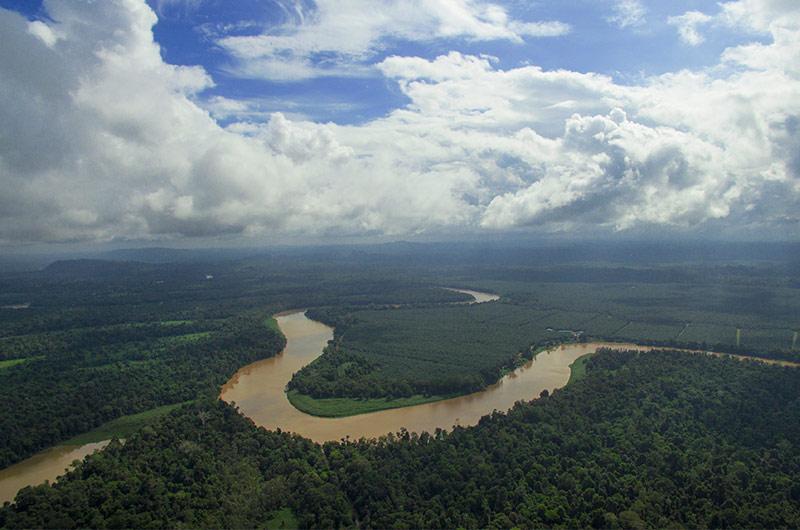
About
Kinabatangan, a district in eastern Sabah, is characterized by the Kinabatangan River, known for its rich wildlife and incredible biodiversity. The landscape also features diminishing habitats such as freshwater swamp forests and oxbow lakes.
The main source of income in Kinabatangan is oil palm, as well as eco-tourism. Other important commodities include cocoa, coconut, rubber and tropical timber. The Sabah state government is promoting the implementation of Sabah Jurisdictional Certified Sustainable Palm Oil (JCSPO) certification which supports Malaysian Sustainable Palm Oil (MSPO) standards.
Sabah, in Northern Borneo, holds 6% of the planet’s global biodiversity and is home to some of the world’s oldest and most valuable rainforests. Sabah’s forests provide a vital habitat for up to 1000 species including Bornean Orangutans, Borneo Pygmy Elephants, clouded leopards and Proboscis Monkeys.
About NISCOPS
National Initiatives for Sustainable and Climate Smart Oil Palm Smallholders (NISCOPS) - a partnership between IDH and Solidaridad - brings together key stakeholders to improve land use, create better incomes for smallholders and promote inclusive markets.
NISCOPS supports Malaysia’s commitments under the Paris Agreement, the Convention on Biological Diversity and the United Nations’ Sustainable Development Goals (SDGs), by operationalizing climate smart agriculture in Sabah, Sarawak, and Peninsular Malaysia. NISCOPS is implemented by the Malaysian Palm Oil Board (MPOB) on behalf of the Government of Malaysia as well as IDH and Solidaridad Network on behalf of the donors.
Improving Land Use
In Kinabatangan, IDH has partnered with Sawit Kinabalu Group (SKG), one of Sabah’s leading government-linked plantation companies, whose vision is to be a sustainable and progressive palm oil enterprise. SKG set up the Conservation & Biodiversity Unit (CBU) which focuses on biodiversity protection, habitat restoration, wildlife conservation, community engagement, and sustainable ecotourism across SKG's operations.
CBU manages several conservation landscapes, such as the Sg. Pin Conservation Area (SPnCA) in Kinabatangan, which serves as a model for integrating oil palm production with biodiversity protection and community-based conservation. Through partnerships with government agencies, NGOs, and research institutions, CBU aims to support Sabah’s vision for a green and sustainable future.
Creating better incomes
In collaboration with KOPEL BHD and Nestle Malaysia a total of 8,251 native tree seedlings were planted in designated restoration plots across SPnCA to restore habitats and create income opportunities for local communities. CBU is also empowering women’s groups to develop alternative livelihoods aligned with conservation goals.
NISCOPS also provides smallholder farmers in Kinabatangan with training in sustainable farm practices, good agricultural practices and income diversification methods,
Support the Kinabatangan District
There are many opportunities to support this incredible landscape. A 5% increase in smallholder productivity in Sabah could earn smallholders and the state economy nearly RM25 million per year, playing an important role in contributing to the state’s GDP.
Please click the ‘Contact the Initiative’ button on the left hand of the page to get in touch.

